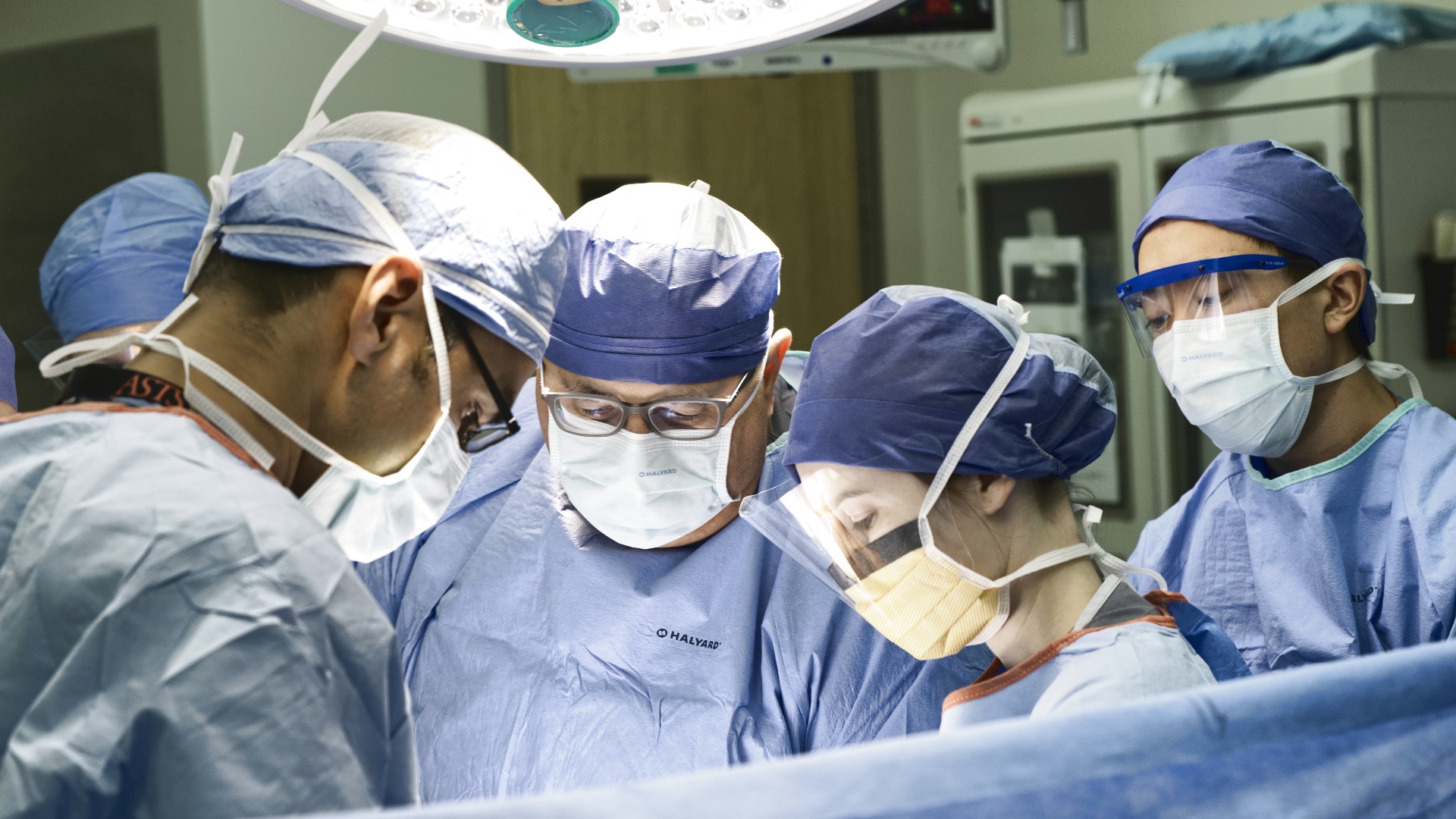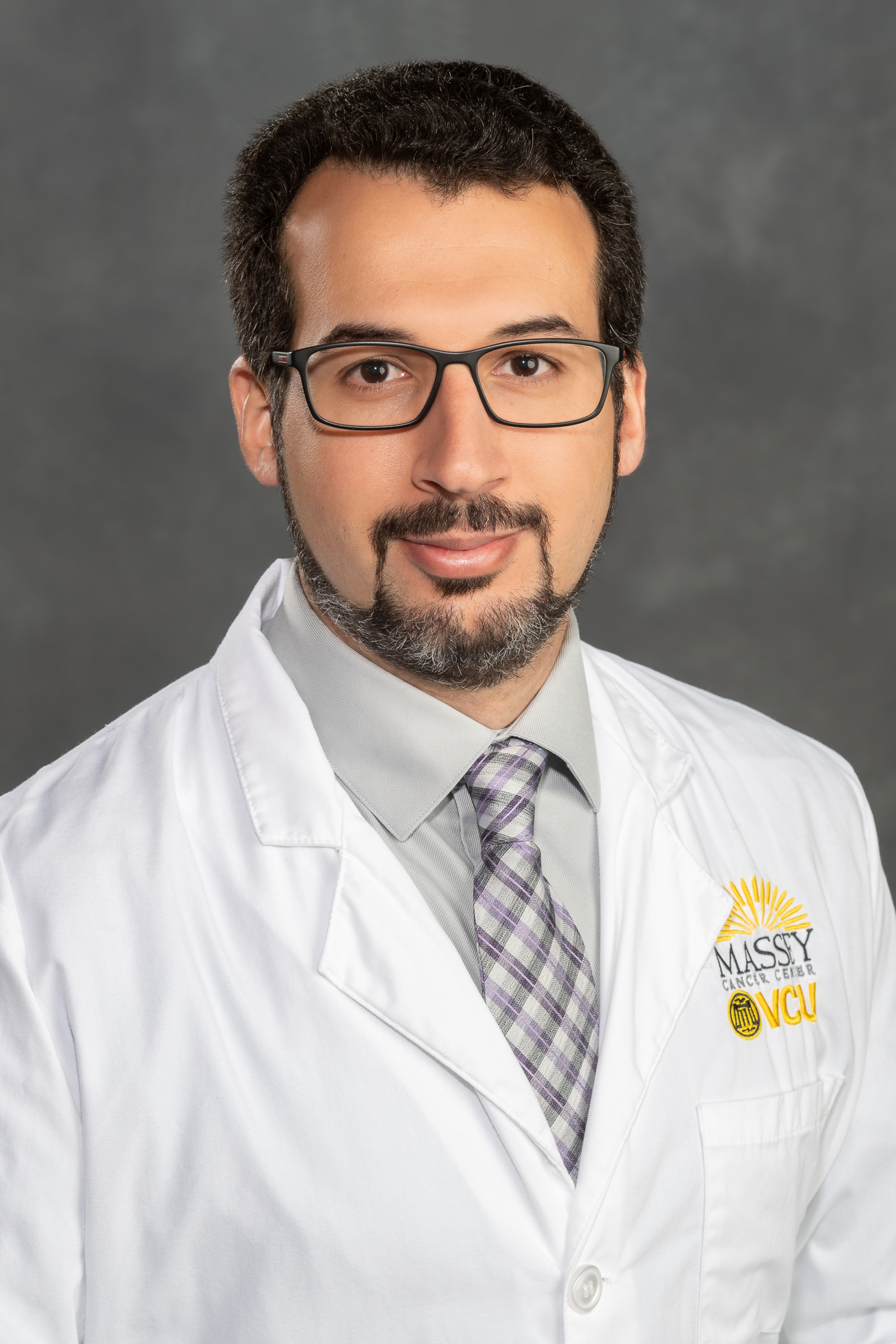Start Your Surgical Oncology Journey: VCU's Premier Fellowship Program
VCU Surgical Oncology Fellowship is a one-year fellowship program that provides advanced training in the surgical management of cancer. The fellowship is designed to prepare surgeons for careers in academic medicine and/or private practice. Fellows will receive training in all aspects of surgical oncology, including the diagnosis, staging, and treatment of cancer. They will also receive training in research methods and clinical trial design.
The VCU Surgical Oncology Fellowship is a highly competitive program. Applicants must have completed a residency in general surgery and must be board-certified or board-eligible in general surgery. Applicants must also have a strong academic record and research experience. The fellowship program is funded by the National Cancer Institute (NCI). Fellows receive a salary and benefits package.
The VCU Surgical Oncology Fellowship is an excellent opportunity for surgeons to receive advanced training in the surgical management of cancer. The fellowship provides a strong foundation for a career in academic medicine or private practice. Fellows will receive training from world-renowned surgeons and researchers. They will also have the opportunity to participate in cutting-edge research.
Read also:Discover All The Fallout 76 Microscopes
VCU Surgical Oncology Fellowship
The VCU Surgical Oncology Fellowship is a highly competitive, one-year program that provides advanced training in the surgical management of cancer. The program prepares surgeons for careers in academic medicine and/or private practice. Key aspects of the fellowship include:
- Training in all aspects of surgical oncology
- Research methods and clinical trial design
- World-renowned surgeons and researchers
- Cutting-edge research
- NCI funding
- Salary and benefits package
- Excellent career opportunities
The VCU Surgical Oncology Fellowship provides a strong foundation for a successful career in surgical oncology. Fellows receive training in all aspects of surgical oncology, including the diagnosis, staging, and treatment of cancer. They also receive training in research methods and clinical trial design. The fellowship is funded by the National Cancer Institute (NCI), and fellows receive a salary and benefits package. The fellowship program is highly competitive, and applicants must have completed a residency in general surgery and must be board-certified or board-eligible in general surgery. Applicants must also have a strong academic record and research experience.
1. Training in all aspects of surgical oncology
The VCU Surgical Oncology Fellowship provides comprehensive training in all aspects of surgical oncology, including the diagnosis, staging, and treatment of cancer. This training is essential for surgeons who want to pursue careers in academic medicine or private practice. Fellows will receive training in a variety of surgical techniques, including:
- Minimally invasive surgery
- Robotic surgery
- Open surgery
- Laser surgery
- Cryosurgery
- Electrocautery
In addition to surgical techniques, fellows will also receive training in medical oncology, radiation oncology, and palliative care. This training will provide fellows with a well-rounded understanding of the treatment of cancer.
The VCU Surgical Oncology Fellowship is one of the most competitive fellowship programs in the country. The program is highly sought after by surgeons who want to pursue careers in surgical oncology. Fellows who complete the program are well-prepared for careers in academic medicine or private practice.
2. Research methods and clinical trial design
Research methods and clinical trial design are essential components of the VCU Surgical Oncology Fellowship. The fellowship provides fellows with the opportunity to participate in cutting-edge research and to develop the skills necessary to design and conduct clinical trials. This training is essential for surgeons who want to pursue careers in academic medicine and/or private practice.
Read also:Ultimate Guide To Pronouncing Strategist Correctly
Research methods and clinical trial design are used to evaluate the safety and efficacy of new cancer treatments. This research can lead to new and improved treatments for cancer patients. Fellows in the VCU Surgical Oncology Fellowship will have the opportunity to participate in a variety of research projects, including:
- Phase I clinical trials: These trials are designed to evaluate the safety of new cancer treatments.
- Phase II clinical trials: These trials are designed to evaluate the efficacy of new cancer treatments.
- Phase III clinical trials: These trials are designed to compare the efficacy of new cancer treatments to standard treatments.
In addition to participating in research projects, fellows will also receive training in research methods and clinical trial design. This training will provide fellows with the skills necessary to design and conduct their own clinical trials. This training is essential for surgeons who want to pursue careers in academic medicine.
The VCU Surgical Oncology Fellowship is one of the few fellowship programs in the country that provides training in research methods and clinical trial design. This training is essential for surgeons who want to pursue careers in academic medicine and/or private practice.
3. World-renowned surgeons and researchers
The VCU Surgical Oncology Fellowship program is led by a team of world-renowned surgeons and researchers. These surgeons and researchers are experts in the field of surgical oncology, and they have a wealth of experience in treating cancer patients. The surgeons and researchers in the fellowship program are committed to providing patients with the highest quality of care, and they are constantly working to develop new and innovative treatments for cancer.
- Expertise
The surgeons and researchers in the VCU Surgical Oncology Fellowship program have expertise in a wide range of surgical oncology procedures, including minimally invasive surgery, robotic surgery, and open surgery. They also have expertise in medical oncology, radiation oncology, and palliative care.
- Experience
The surgeons and researchers in the VCU Surgical Oncology Fellowship program have a wealth of experience in treating cancer patients. They have treated thousands of patients with a variety of cancer types, and they have a deep understanding of the challenges that cancer patients face.
- Commitment to patient care
The surgeons and researchers in the VCU Surgical Oncology Fellowship program are committed to providing patients with the highest quality of care. They are dedicated to providing patients with the most up-to-date treatments and technologies, and they are always looking for ways to improve the patient experience.
- Research
The surgeons and researchers in the VCU Surgical Oncology Fellowship program are actively involved in research. They are conducting research to develop new and innovative treatments for cancer, and they are working to improve the outcomes of cancer patients.
The VCU Surgical Oncology Fellowship program is one of the top fellowship programs in the country. The program is led by a team of world-renowned surgeons and researchers who are committed to providing patients with the highest quality of care. Fellows in the program will receive training from the best surgeons and researchers in the field, and they will have the opportunity to participate in cutting-edge research.
4. Cutting-edge research
Cutting-edge research is an essential component of the VCU Surgical Oncology Fellowship. The fellowship provides fellows with the opportunity to participate in cutting-edge research and to develop the skills necessary to design and conduct clinical trials. This training is essential for surgeons who want to pursue careers in academic medicine and/or private practice.
- Translational research
Translational research is a type of research that translates laboratory findings into new treatments for patients. This type of research is essential for developing new and more effective treatments for cancer.
- Clinical trials
Clinical trials are a type of research that tests the safety and efficacy of new cancer treatments. This type of research is essential for determining whether new treatments are safe and effective for patients.
- Biomarker research
Biomarker research is a type of research that identifies biomarkers that can be used to diagnose, predict, and treat cancer. This type of research is essential for developing new and more personalized treatments for cancer.
- Immunotherapy research
Immunotherapy research is a type of research that develops new ways to use the immune system to fight cancer. This type of research is essential for developing new and more effective treatments for cancer.
The VCU Surgical Oncology Fellowship program is one of the few fellowship programs in the country that provides training in cutting-edge research. This training is essential for surgeons who want to pursue careers in academic medicine and/or private practice.
5. NCI funding
NCI funding is essential for the VCU Surgical Oncology Fellowship. The NCI is the National Cancer Institute, and it is the largest funder of cancer research in the world. The NCI provides funding for a variety of research projects, including clinical trials, translational research, and biomarker research. This funding is essential for the development of new and more effective treatments for cancer.
The VCU Surgical Oncology Fellowship is one of the top fellowship programs in the country. The program is highly competitive, and it attracts the best and brightest surgeons from around the country. The NCI funding that the fellowship receives allows it to provide fellows with the best possible training. Fellows in the program have access to the latest technologies and treatments, and they are trained by world-renowned surgeons and researchers.
The NCI funding that the VCU Surgical Oncology Fellowship receives has a direct impact on the quality of care that cancer patients receive. The fellows who are trained in the program go on to become leaders in the field of surgical oncology. They are the surgeons who are developing new and innovative treatments for cancer, and they are the surgeons who are providing the best possible care to cancer patients.
6. Salary and benefits package
The salary and benefits package offered by the VCU Surgical Oncology Fellowship is competitive and commensurate with the experience and qualifications of the fellow. The salary and benefits package includes a competitive salary, medical insurance, dental insurance, vision insurance, life insurance, disability insurance, retirement benefits, and paid time off.
The salary and benefits package offered by the VCU Surgical Oncology Fellowship is important for several reasons. First, it allows fellows to focus on their training without having to worry about their financial situation. Second, it helps to attract and retain the best and brightest surgeons to the fellowship program. Third, it helps to ensure that fellows are able to provide the highest quality of care to their patients.
The salary and benefits package offered by the VCU Surgical Oncology Fellowship is a key component of the fellowship program. It allows fellows to focus on their training, attract and retain the best and brightest surgeons, and ensure that fellows are able to provide the highest quality of care to their patients.
7. Excellent career opportunities
The VCU Surgical Oncology Fellowship provides graduates with exceptional career prospects in the field of surgical oncology. Upon completion of the fellowship program, graduates are highly sought after by hospitals and medical centers across the country.
- Academic medicine
Graduates of the VCU Surgical Oncology Fellowship are well-prepared for careers in academic medicine. They have the skills and experience necessary to teach medical students and residents, and they are able to conduct independent research. Many graduates of the fellowship go on to become faculty members at leading medical schools and cancer centers.
- Private practice
Graduates of the VCU Surgical Oncology Fellowship are also well-prepared for careers in private practice. They have the skills and experience necessary to provide high-quality surgical care to cancer patients. Many graduates of the fellowship go on to establish their own private practices or join existing surgical oncology practices.
- Research
Graduates of the VCU Surgical Oncology Fellowship are also well-prepared for careers in research. They have the skills and experience necessary to design and conduct clinical trials and other research studies. Many graduates of the fellowship go on to become principal investigators on research grants and to publish their findings in leading medical journals.
- Leadership
Graduates of the VCU Surgical Oncology Fellowship are also well-prepared for leadership roles in the field of surgical oncology. They have the skills and experience necessary to manage complex surgical oncology programs and to develop and implement new cancer care initiatives. Many graduates of the fellowship go on to become department chairs, division chiefs, and medical directors.
The VCU Surgical Oncology Fellowship provides graduates with the skills and experience necessary to pursue a successful career in surgical oncology. Graduates of the fellowship are highly sought after by hospitals and medical centers across the country, and they are well-prepared for careers in academic medicine, private practice, research, and leadership.
FAQs about VCU Surgical Oncology Fellowship
The VCU Surgical Oncology Fellowship is a highly competitive, one-year program that provides advanced training in the surgical management of cancer. The program is designed to prepare surgeons for careers in academic medicine and/or private practice. Here are some frequently asked questions about the fellowship:
Question 1: What are the eligibility requirements for the fellowship?
Applicants must have completed a residency in general surgery and must be board-certified or board-eligible in general surgery. Applicants must also have a strong academic record and research experience.
Question 2: What is the application process for the fellowship?
The application process for the fellowship is highly competitive. Applicants must submit a CV, personal statement, letters of recommendation, and a research proposal. Interviews are granted to a select number of applicants.
Question 3: What is the duration of the fellowship?
The fellowship is a one-year program.
Question 4: What is the curriculum of the fellowship?
The fellowship curriculum includes rotations in surgical oncology, medical oncology, radiation oncology, and palliative care. Fellows also receive training in research methods and clinical trial design.
Question 5: What are the career opportunities for graduates of the fellowship?
Graduates of the fellowship are well-prepared for careers in academic medicine and/or private practice. Many graduates go on to become faculty members at leading medical schools and cancer centers, or to establish their own private practices.
Question 6: How do I apply for the fellowship?
Applications for the fellowship can be submitted through the Electronic Residency Application Service (ERAS). The application deadline is November 1st.
The VCU Surgical Oncology Fellowship is an excellent opportunity for surgeons to receive advanced training in the surgical management of cancer. The fellowship provides a strong foundation for a career in academic medicine or private practice.
If you have any further questions about the VCU Surgical Oncology Fellowship, please contact the program director.
VCU Surgical Oncology Fellowship Tips
Applying for a surgical oncology fellowship can be a competitive process. Here are some tips to help you put together a strong application:
Tip 1: Start early.
The application process for surgical oncology fellowships can be lengthy, so it is important to start early. This will give you plenty of time to research programs, gather your materials, and write your personal statement.
Tip 2: Get involved in research.
Research experience is an important part of any surgical oncology fellowship application. Try to get involved in research projects early in your residency, and make sure to publish your findings in peer-reviewed journals.
Tip 3: Get good letters of recommendation.
Letters of recommendation are an important part of your fellowship application. Make sure to ask for letters from surgeons who know you well and can attest to your skills and abilities.
Tip 4: Attend conferences.
Attending conferences is a great way to learn about the latest advances in surgical oncology and to network with other surgeons. It is also a good opportunity to meet program directors and learn more about their fellowships.
Tip 5: Practice your interviewing skills.
Interviewing for a surgical oncology fellowship can be a daunting experience. Make sure to practice your interviewing skills before you go on any interviews.
Tip 6: Be yourself.
When you are on your interviews, be yourself. Program directors want to get to know the real you, so don't try to be someone you are not.
Summary
By following these tips, you can increase your chances of matching into a VCU Surgical Oncology Fellowship. The fellowship is a great opportunity to receive advanced training in the surgical management of cancer. Graduates of the fellowship are well-prepared for careers in academic medicine and/or private practice.
Transition to the article's conclusion
If you are interested in applying for the VCU Surgical Oncology Fellowship, I encourage you to visit the program's website and contact the program director. The deadline to apply for the fellowship is November 1st.
The VCU Surgical Oncology Fellowship
The VCU Surgical Oncology Fellowship is a highly competitive, one-year program that provides advanced training in the surgical management of cancer. The program is designed to prepare surgeons for careers in academic medicine and/or private practice. Graduates of the fellowship are well-prepared to provide the highest quality of care to cancer patients.
The fellowship provides a strong foundation in all aspects of surgical oncology, including the diagnosis, staging, and treatment of cancer. Fellows also receive training in research methods and clinical trial design. The program is led by a team of world-renowned surgeons and researchers who are committed to providing fellows with the best possible training.
The VCU Surgical Oncology Fellowship is an excellent opportunity for surgeons to receive advanced training in the surgical management of cancer. Graduates of the fellowship are well-prepared for careers in academic medicine and/or private practice. They are the surgeons who are developing new and innovative treatments for cancer, and they are the surgeons who are providing the best possible care to cancer patients.
Discover Nikki Park: Your Gateway To Adventure And Relaxation
Hannah Einbinder's Age Unveiled: A Star On The Rise
Your Favorite Rosalie Cullen Actress: Unveiled

Surgical Oncology Department of Surgery VCU School of Medicine

Surgical Oncology Department of Surgery VCU School of Medicine

Surgical Oncology Department of Surgery VCU School of Medicine